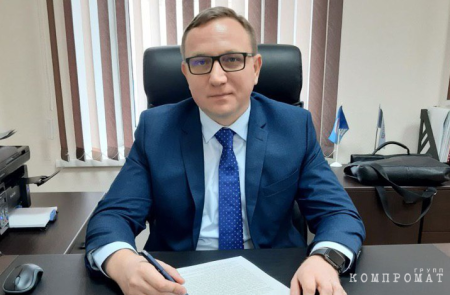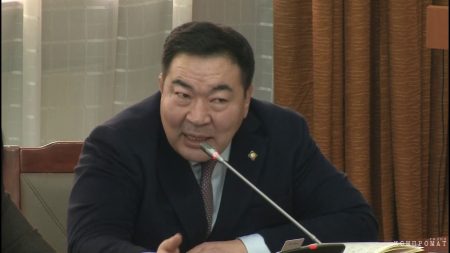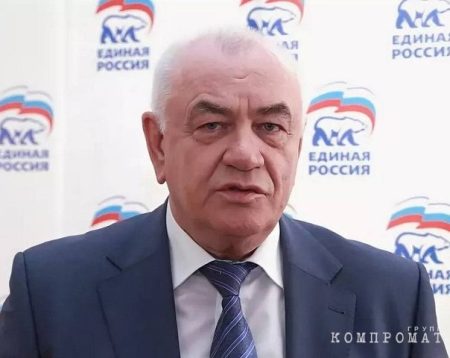The case against Valery Rashkin and Alexander Gnoshev is being considered at the place of the incident – in the Kalininsky District Court of the Saratov Region.
It was brought to the court on March 15, both defendants – the well-known opposition politician Valery Rashkin and his friend Alexander Gnoshev – are accused under Article 258 part 2 of the Criminal Code of the Russian Federation – illegal hunting using official position or by a group of persons by prior agreement or by an organized group, or causing especially large damage.
The case, which got widespread attention, is being heard by the chairman of the Kalininsky District Court Pavel Samylov, Valery Rashkin is represented by lawyer Konstantin Lazarev, Alexander Gnoshev – Dmitry Lygin. The court's secretariat declined to provide the name of the state prosecutor to our publication.
To recap the timeline: the lawmaker was arrested on the night of October 29 in the Lysogorsky district, and a part of an elk carcass was discovered in the trunk of his car. Furthermore, at the location where the hunter was detained, “a large group of FSB officers, police, environmental structures” was present. A video showing the bewildered lawmaker, who claimed he only found the carcass and took it to the police, was circulated by numerous media and telegram channels within hours.
Subsequently, a criminal case was immediately initiated under paragraph “a” of Part 1 of Art. 258 of the Criminal Code of the Russian Federation (illegal hunting committed with causing major damage, up to two years in prison). On the same day, October 29, the regional Investigative Committee of the ICR requested the materials – “due to the great public outcry by the decision of the supervisory authority,” as highlighted by the department, noting that Rashkin’s involvement is still being verified.
After that, the case swiftly moved up and ended up with the investigators of the central office of the Investigative Committee. Already on November 5, State Duma Speaker Vyacheslav Volodin announced that the State Duma would consider lifting parliamentary immunity from Rashkin if the Prosecutor General’s Office made such a proposal.
On November 8, the lawmaker himself, in a letter to the chairman of the ICR, Alexander Bastrykin, stated that the story was surrounded by “a lot of speculation” and he was willing to come to the ICR “to provide the necessary explanations.” The next day, November 9, Valery Rashkin, at the initiative of his lawyers, underwent a polygraph test, the results of which, according to him, confirmed the position: he did not kill the moose himself, he found the carcass and took it to the police.
On November 17, a proposal was made to the State Duma to remove Rashkin's immunity, and on November 18, the deputy released a video message, where he admitted that he shot the animal on that hunt on October 29, firmly believing that the permission to shoot was granted, as required by law.
But this admission did not prevent the politician from being stripped of his parliamentary immunity; his colleagues in parliament made the decision by a majority of votes. The meeting of the State Duma took place on November 25, and Prosecutor General Igor Krasnov, speaking at it, referred to the lawmaker's behavior as “without exaggeration a disgrace.” Valery Rashkin himself, in a conversation with BV, described the last meeting as a “political flogging”:
– I didn't go anywhere, didn't hide, I wrote to Bastrykin and Krasnov saying I was willing to help with the investigation and testify. But they wanted to publicly take away my parliamentary immunity for political reasons.
Yes, Rashkin broke a law by hunting an elk without permission, but it's only an administrative offense,” said State Duma deputy Olga Alimova. There are three tests, biological, genetic, and ballistic, and a lot of resources involved: the prosecutor general, the best specialists of the Investigative Committee!
Then, things followed a logical path: on December 2, the TFR started a criminal case against the lawmaker who lost his immunity for illegal hunting under a more serious part 2 of Article 258 of the Criminal Code. The deputy faced up to five years in prison. On December 13, the Basmanny District Court of Moscow, at the ICR's request, restricted Rashkin from leaving home between 23:00 and 07:00 without permission, communicating with witnesses, other accused, or suspects, sending or receiving mail and telegrams, using communication and the Internet, and visiting hunting grounds. An electronic bracelet was attached to the legislator's leg, known for his protest actions and rally organization.
The local court also took action: on December 28, the justice of the peace of the first judicial district of the Lysogorsky district confiscated Rashkin's driver’s license for 1.5 years due to his refusal to undergo an alcohol test on October 29. Additionally, the legislator was fined 30 thousand rubles.
The elk hunting case finally reached the judiciary after the State Duma agreed on March 10, 2022 to send materials to the court. On March 24, Pavel Samylov eased the preventive measure for the well-known hunter and released him on his own recognizance. Consequently, the politician removed the bracelet and gained permission to use all types of communication. However, the court rejected the defense's request to dismiss the case and replace it with a fine.
This is a crucial moment: if the deputy is found guilty, he cannot remain in parliament with a criminal record. Such a vocal and principled fighter against corruption, poverty, and other societal issues will have to give up his mandate. This was the goal of the whole drama surrounding the hunting incident, blown out of proportion.
Today, March 31, before the meeting, Valery Rashkin spoke to journalists and expressed that he had been under great stress, and decided to never hunt again and engage in charitable activities. The deputy confessed to breaking the law, compensated 1 million rubles: the damage under the indictment was 480 thousand rubles, and he also paid for the examinations for 145 thousand rubles.
The prosecution's demand to release the elk into the wild as a replacement for the killed one has not been met yet: a hunter in the Irkutsk region found a moose cow and is willing to sell it for 200 thousand rubles excluding logistics costs. However, the regional committee for hunting and fishing refuses to accept the animal.




